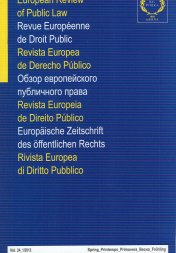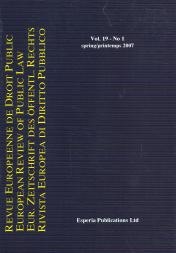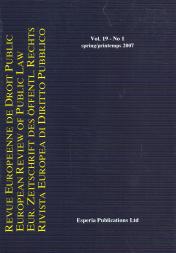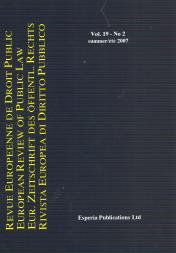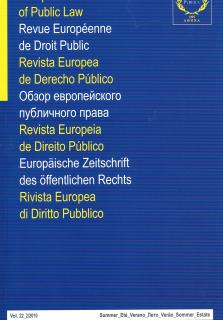
Responsabilité et transparence dans la fonction publique
(Responsibility and Transparency in the Civil Service)
Giuseppe Cogliandro
Magistrat à la Cour des comptes (Rome)
The article, after having analysed the various forms of responsibility within the framework of civil service, underlines the importance of financial responsibility. Differently from the other forms of responsibility, which are simple adaptations of the general principles to civil service, financial responsibility is specific to the public sector, because of the very special power of the State, the only entity which has the right to deduct in a coercive way money from citizens, in order to guarantee security and well-being to the community. This obligation does not actually concern only the use of public funds, but also, in application of the principles of effectiveness and efficiency, the results of administrative activity. And all of that signifies that the administration’s obligation of accountability is not based any more on the traditional principle of financial responsibility, as it was being affirmed by the Declaration of the Rights of Man and of the Citizen (Déclaration des droits de l’Homme et du Citoyen) of 1789, but simply on that of transparency, because, in a modern democratic society, transparency is an attribute consubstantial to public power.
L’article, après avoir analysé les différentes formes de responsabilité dans la fonction publique, souligne l’importance de la responsabilité financière. A la différence des autres formes de responsabilité, qui sont de simples adaptations à la fonction publique des principes généraux, la responsabilité financière est spécifique du secteur public, en raison du pouvoir très particulier de l’Etat, la seule entité qui a le droit de prélever d’une façon coercitive l’argent aux citoyens, afin de garantir sécurité et bien-être à la collectivité. Cette obligation actuellement ne concerne plus seulement l’utilisation de l’argent public, mais aussi, en application des principes d’efficacité et d’efficience, les résultats de l’activité administrative. Et tout cela signifie que l’obligation de l’administration de rendre compte ne se fonde plus sur le principe traditionnel de la responsabilité financière, comme l’affirmait la Déclaration des droits de l’Homme et du Citoyen de 1789, mais simplement sur celui de la transparence, parce que, dans une société démocratique moderne, la transparence est un attribut consubstantiel du pouvoir public.














